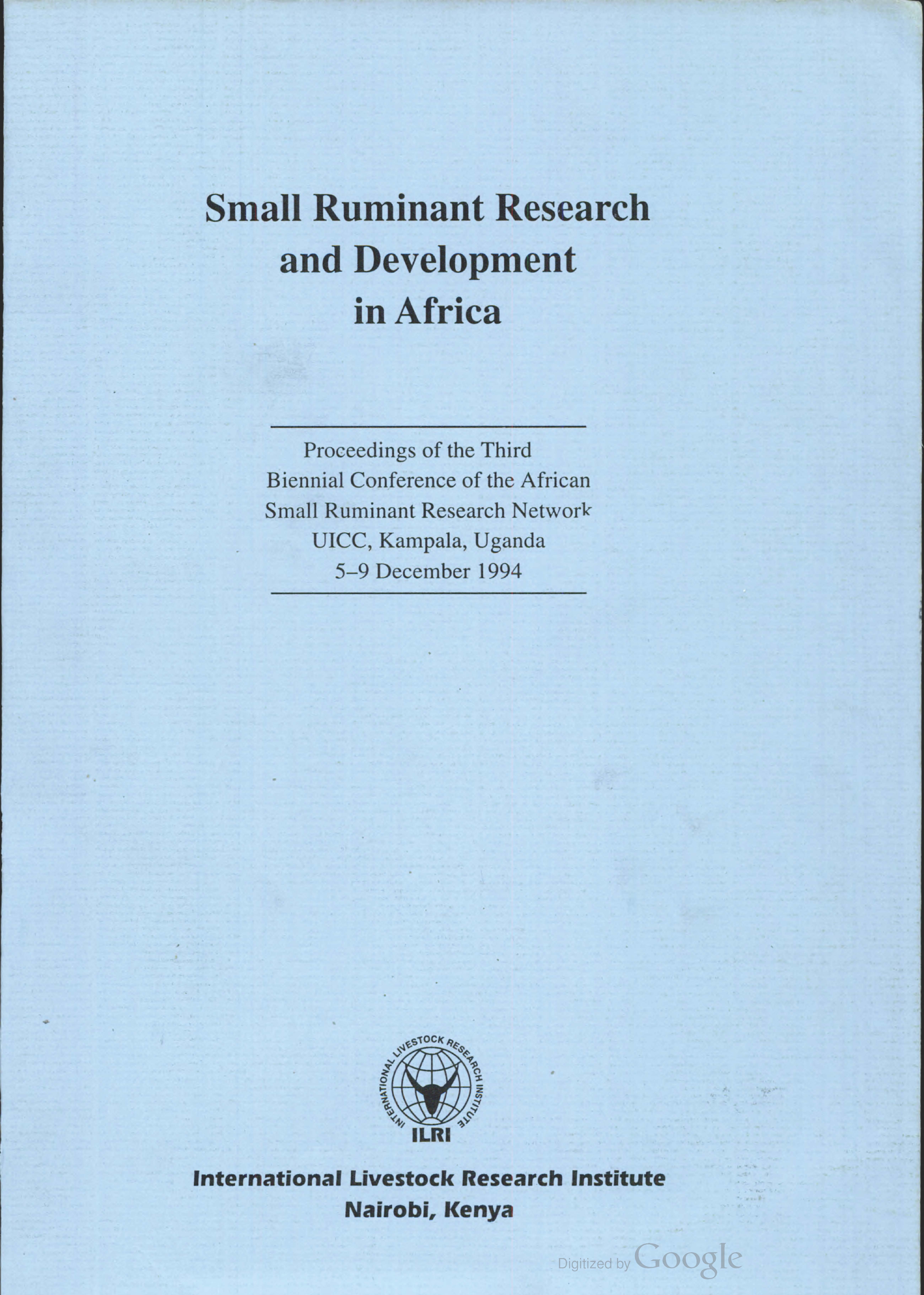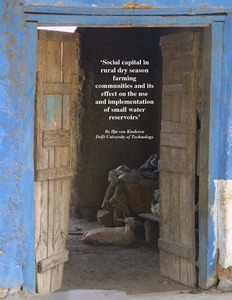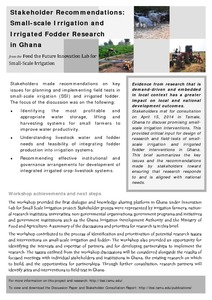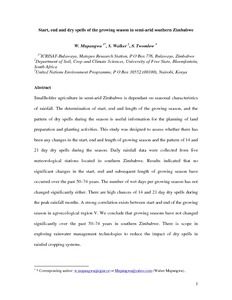Small ruminant management practices and control of helminthosis under traditional production systems in the cool Ethiopian highlands
Formulation of cost-effective preventive control programmes for helminth infection in small ruminants should be based on sound epidemiological knowledge of the time relationship between contamination of pastures and the seasonal availability of infective larvae in a given geographic area. Epidemiological data generated from an on-station experiment involving the use of tracer lambs and monitoring of pasture contamination levels in the central Ethiopian highlands clearly showed a distinct seasonal pattern of nematode infection in sheep.
Simulation of farming systems in the Olifants river basin South Africa
Smallholder farmers’ attitudes and determinants of adaptation to climate risks in East Africa
Adapting to climate risks is central to the goal of increasing food security and enhancing resilience of farming systems in East Africa. We examined farmers’ attitudes and assessed determinants of adaptation using data from a random sample of 500 households in Borana, Ethiopia, Nyando, Kenya, Hoima Uganda, and Lushoto, Tanzania. Adaptation was measured using a livelihood-based index that assigned weights to different individual strategies based on their marginal contributions to a household’s livelihood.
Simulation of smallholder farming systems in the Olifants river basin
Soil fertility effect on water productivity of maize and potato in Abay Basin
Stakeholder recommendations: Small-scale irrigation and irrigated fodder research in Ghana
Start end and dry spells of the growing season in semi-arid southern Zimbabwe
Summary of CPWF Research in the Ganges River Basin
The CGIAR Challenge Program on Water and Food (CPWF) has worked in the Ganges River basin since 2003. From 2010 to 2014, its research for development activities focused on the southwest and south-central coastal zone of Bangladesh with some additional work in the coastal zone of West Bengal, India. In most polders the primary limiting factors are poor water management due to the lack of systematic operation of sluice gates; lack of separation of lands of varying elevations; and siltation of the irrigation and drainage canals within polders.
Summary of CPWF Research in the Limpopo River Basin
In 2009, the CGIAR Challenge Program on Water and Food (CPWF) set out to “improve governance and management of rainwater and small water infrastructure in the Limpopo basin to raise productivity, reduce poverty, and improve livelihoods resilience.” Over the following four years, CPWF, led by the Food, Agriculture and Natural Resources Policy Analysis Network (FANRPAN) and partners, coordinated five inter-connected research- for-development projects in the basin. The program










